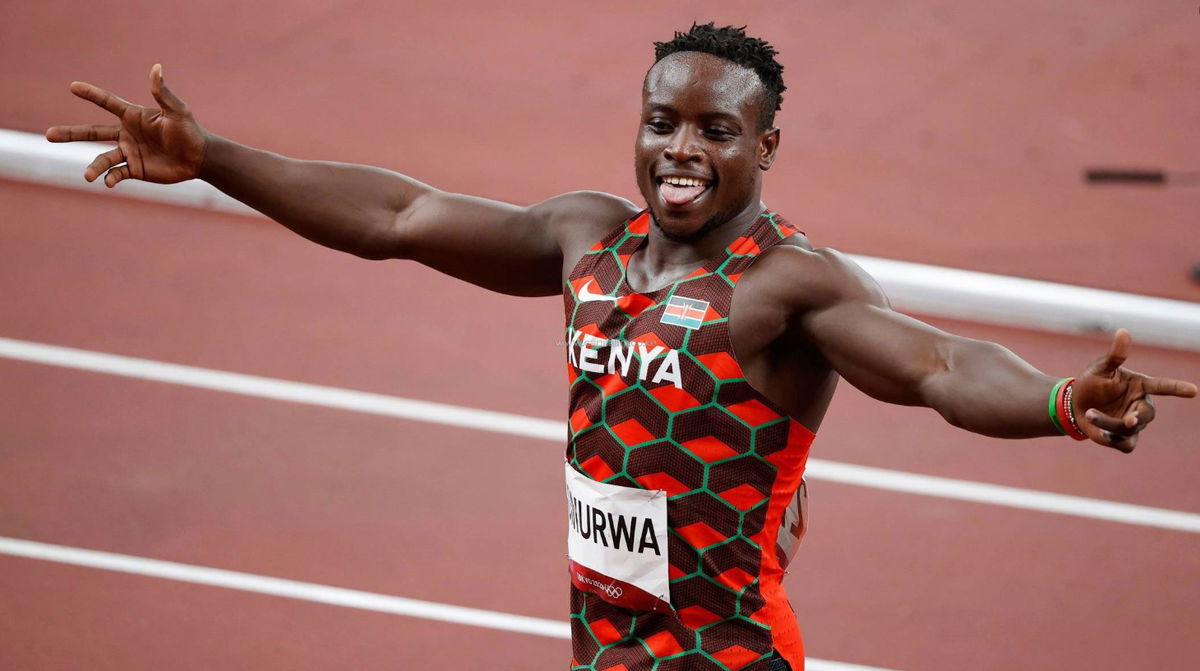

Unlike Jamaica, perpetually basking in the limelight for its extraordinary sprinting talent, Kenya has quietly nurtured its track and field champions without the same global buzz. Despite this low-key reputation, Kenya has produced a legion of athletic legends who have left an indelible mark on the sport. From Tokyo Olympics marathon silver medalist Brigid Jepscheschir Kosgey to 2008 Beijing Olympics 800m gold medalist Pamela Jelimo, Kenyan athletes have consistently brought glory to their nation.
Watch What’s Trending Now!
Now, a new star is blazing a trail on the track: Ferdinand Omanyala, a 28-year-old sprinter whose explosive speed and unyielding determination propelled him toward Olympic gold in Paris, but unfortunately, he couldn’t win any medal. Omanyala, already honored as the flagbearer for the Olympic Games Opening Ceremony, has earned the title of the fastest man in Africa with a record-shattering 9.77-second run at the Kip Keino Classic in Nairobi, Kenya, in September 2021. His performance at the 2024 Kenya Olympic Track and Field trials was nothing short of spectacular, clocking an impressive 9.79 seconds in the men’s 100m, the fastest time of the year.
ADVERTISEMENT
Omanyala’s meteoric rise is a tale of grit, perseverance, and unrelenting ambition. What drives this Kenyan sprinter to push beyond his limits? How has he managed to eclipse the competition and emerge as a beacon of hope for his country? His story is one of overcoming adversity, defying expectations, and embodying the relentless spirit of a nation that refuses to be underestimated
ADVERTISEMENT
What is Ferdinand Omanyala’s ethnicity?
The 2017 World Relays in Nassau marked the entry of a rising star that will put the spotlight on Kenya. Although Omanyala finished fourth in the 4x200m, it was evident Kenya now has a star who can carry their dreams to the Olympics. Touted as a potential 100-meter champion by the American sprint legend Michael Johnson, Omanyala was born in HAMISI, Kenya but now lives in Nairobi. Interestingly, a friend suggested that he try track running after he did not make the Kenya U20 rugby team, and the rest is history.
ADVERTISEMENT

The rising Kenyan star belongs to the Luhya tribe of Kenya and takes special pride in the principle of strength and resilience that his tribe members uphold. Well, it’s evident in Omanyala’s performance that took him to the men’s 100m semi-finals at the Tokyo Olympics and helped him claim the title of the fastest man in Africa. Strengthening the sporting legacy of his family further, the Commonwealth Games 100-meter champion has married another athlete, Laventa Amutavi, a sprinter with a personal best of 12.22.
ADVERTISEMENT
What is Ferdinand Omanyala’s religion?
Growing up in Bungoma County, Kenya, Ferdinand Omanyala belonged to a household that upheld the value of education. Talking to nbcsports.com, Omnyala revealed that his father had taken every step to ensure a good education for their children. However, as a child, Omanyala had a strong connection with nature as well. Interestingly, besides studies, Ferdinand Omanyala used to work on farms and herd cattle. Above all, the values that Ferdinand Omanyala’s parents imparted and their way of living against all the challenges have made Omanyala the resilient athlete that he is today.
ADVERTISEMENT
In terms of religion, Ferdinand Omanyala is a devout Christian and a bit outspoken. For instance, at the 2024 Paris Olympics, he confessed to wearing three different shoes, each with a different biblical message. Africa’s fastest man, Ferdinand Omanyala, is drawing strength from his faith, and as per Mozzart Sport, he revealed that he draws inspiration from the book of Ecclesiastes 7:8. He believes in the verse that reads, “Better is the end of a thing than its beginning, and the patient in spirit is better than the proud.”
Omanyala resonates with this verse as it emphasizes patience. As far as the Olympic shoes are concerned, he said, “But the difference will be in the heats; there will be a Bible verse that I will put in the spikes of the heats. A different Bible verse will be in the semifinal and then a different Bible verse in the final.” Though he couldn’t grab a medal at the Olympics and finished 18th in the 100 m, he is on the rise in his career.
ADVERTISEMENT
ADVERTISEMENT
ADVERTISEMENT
ADVERTISEMENT